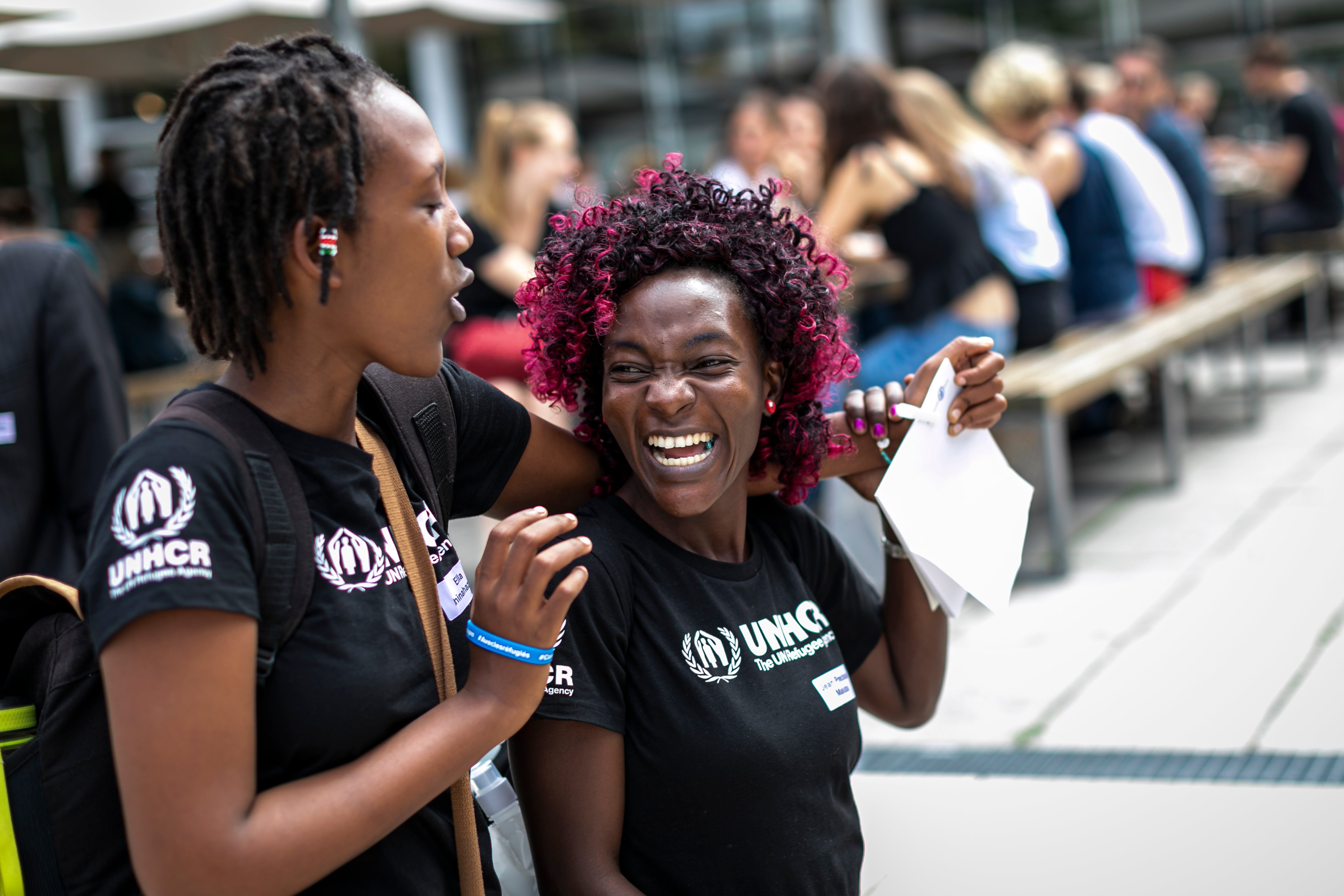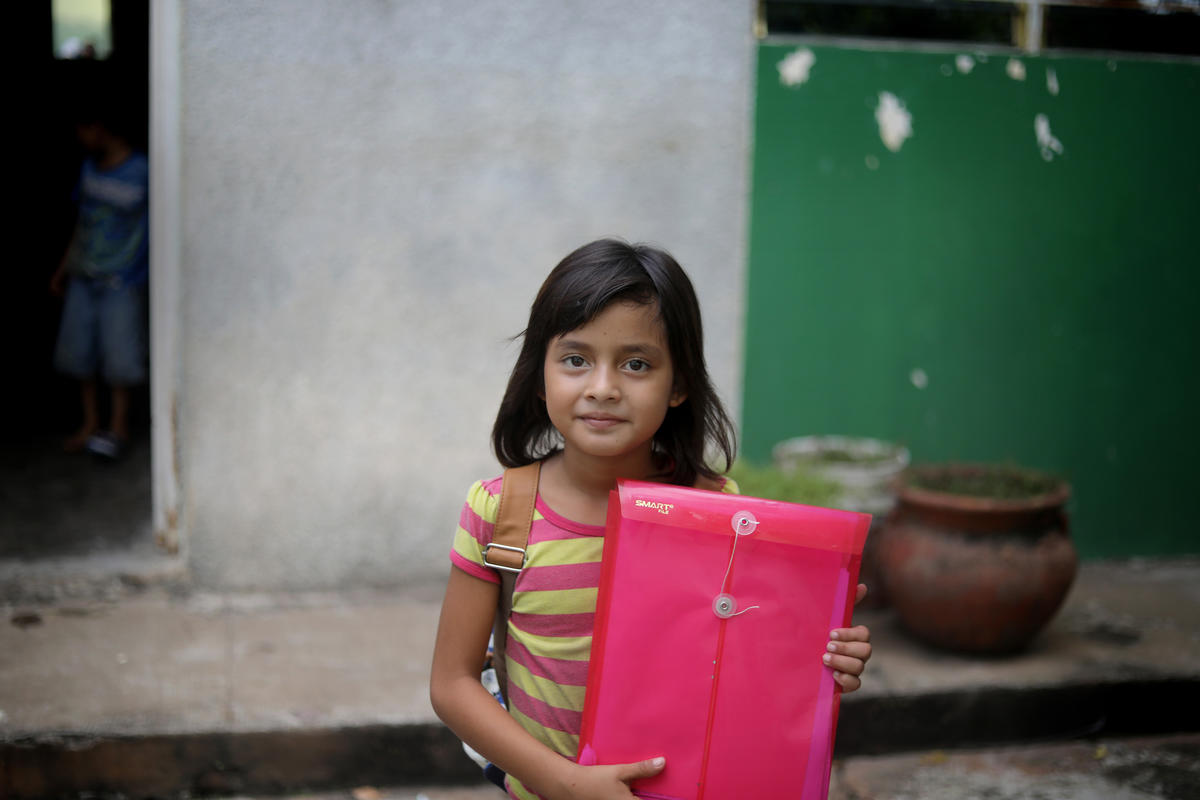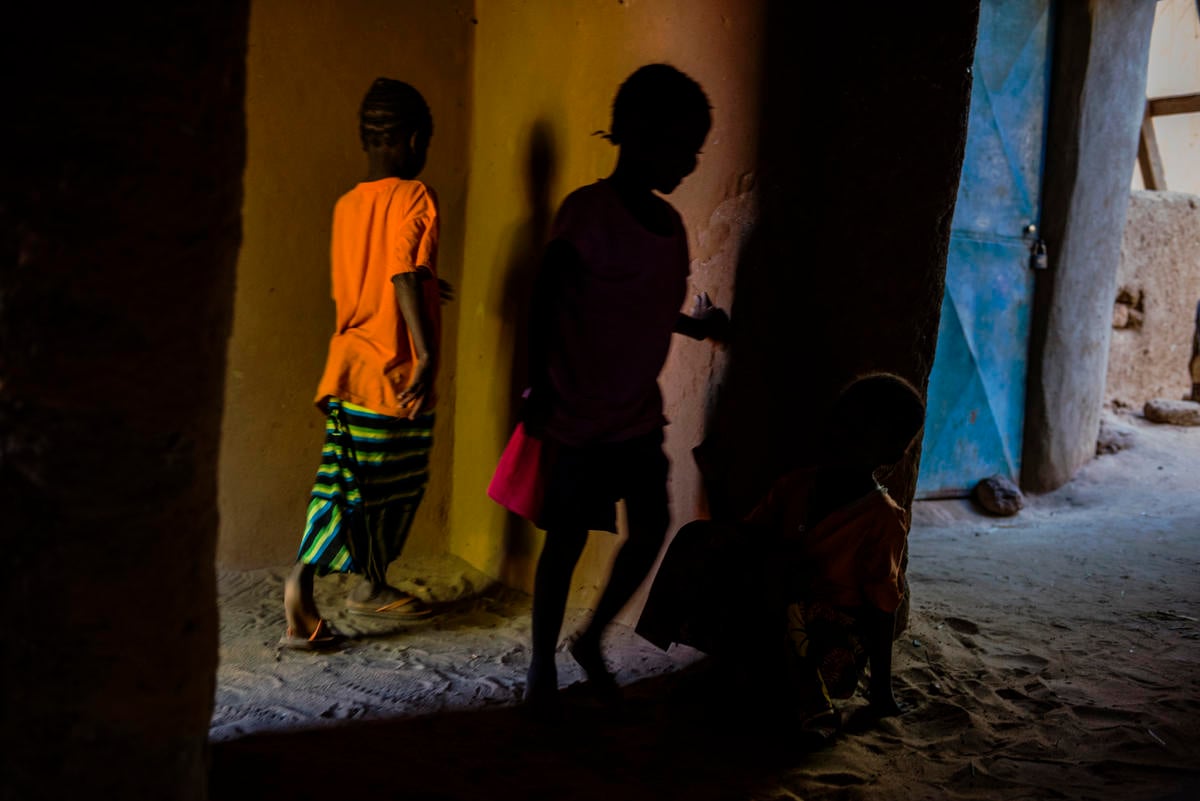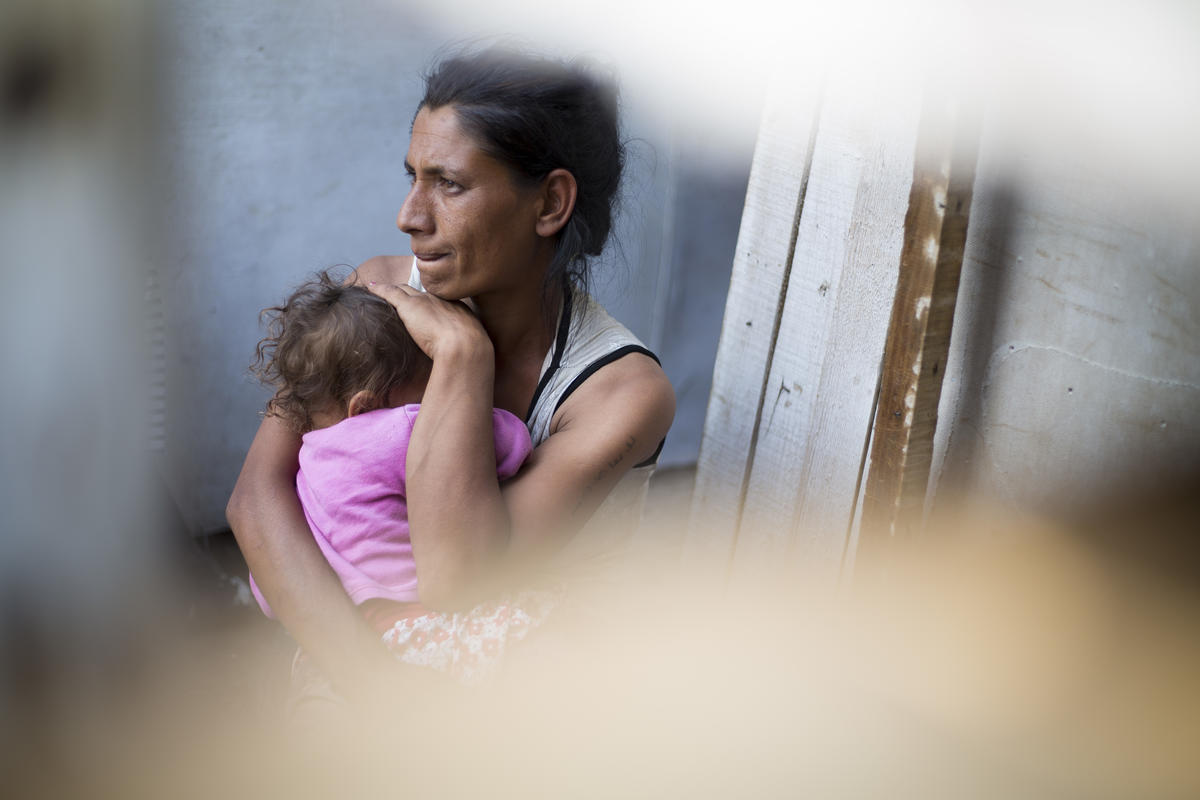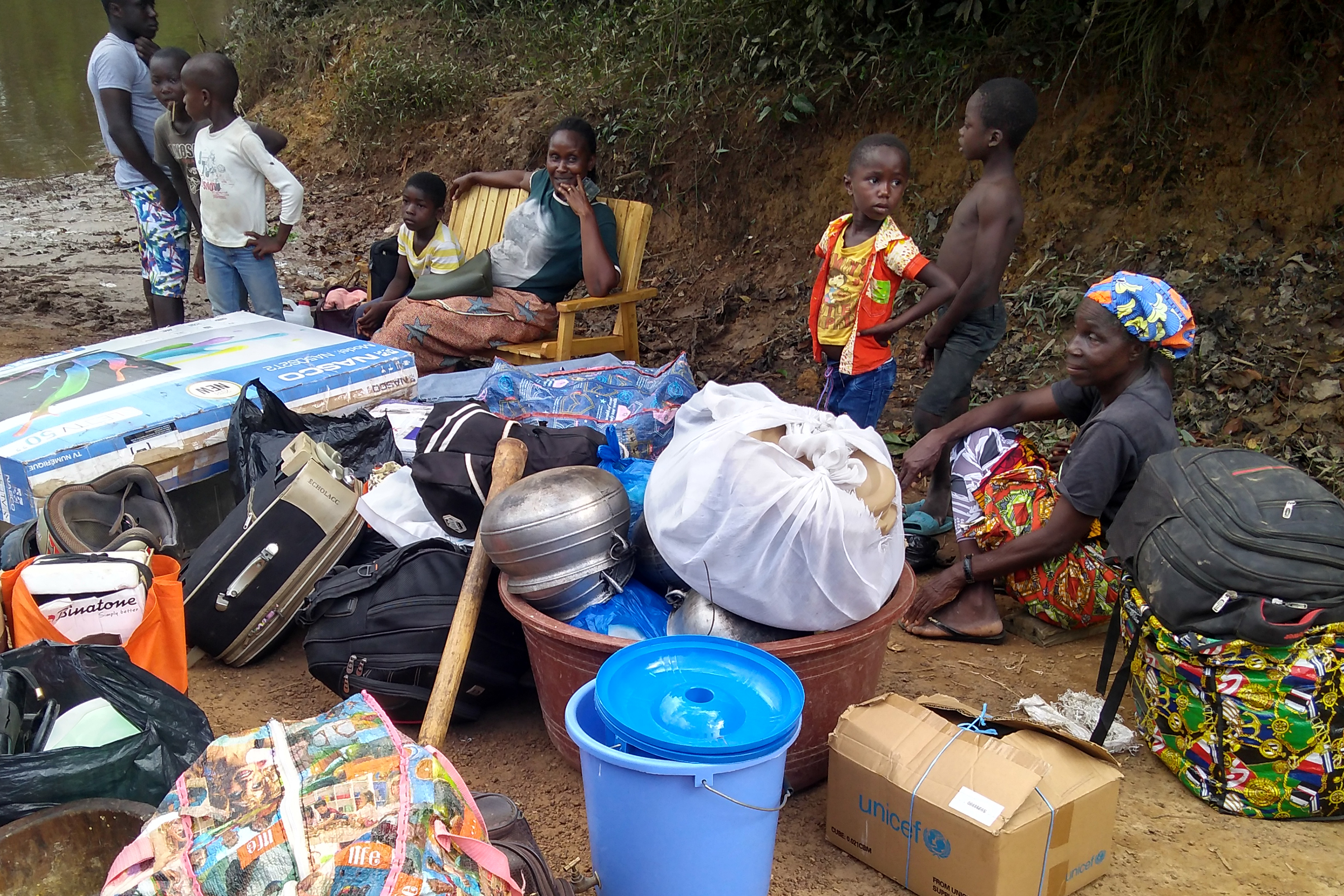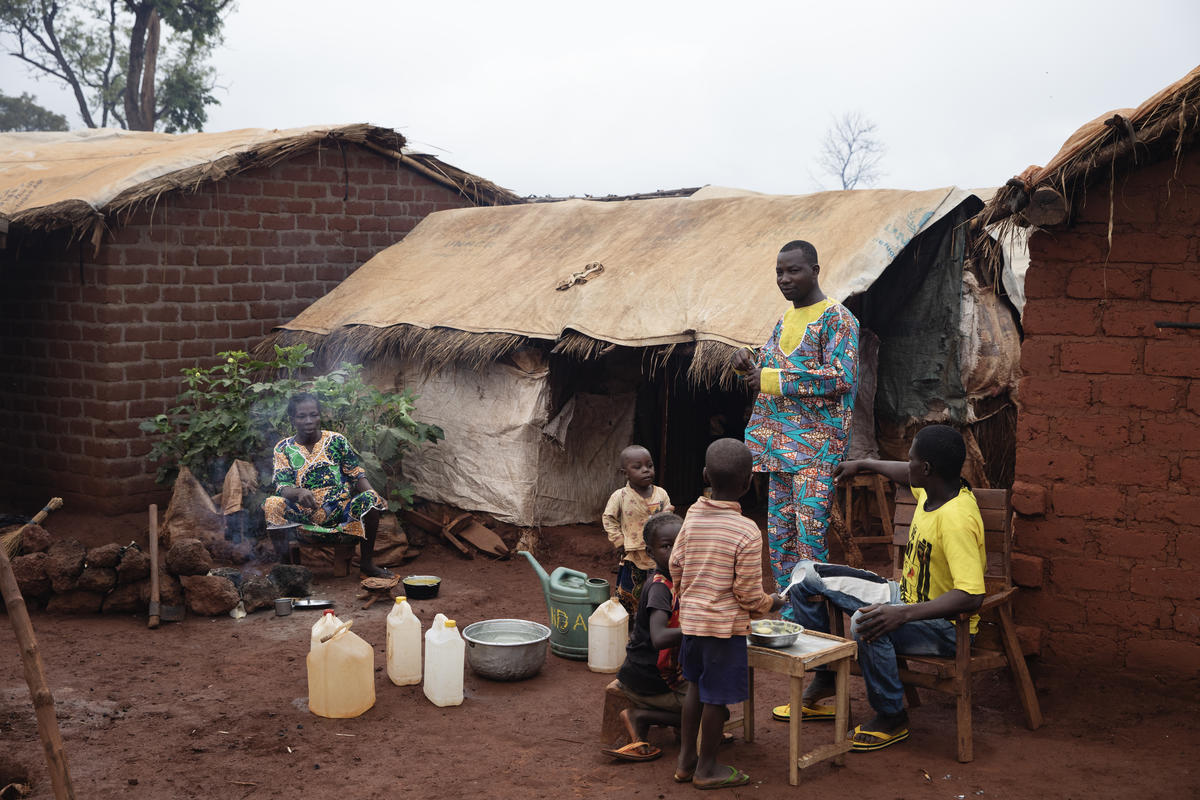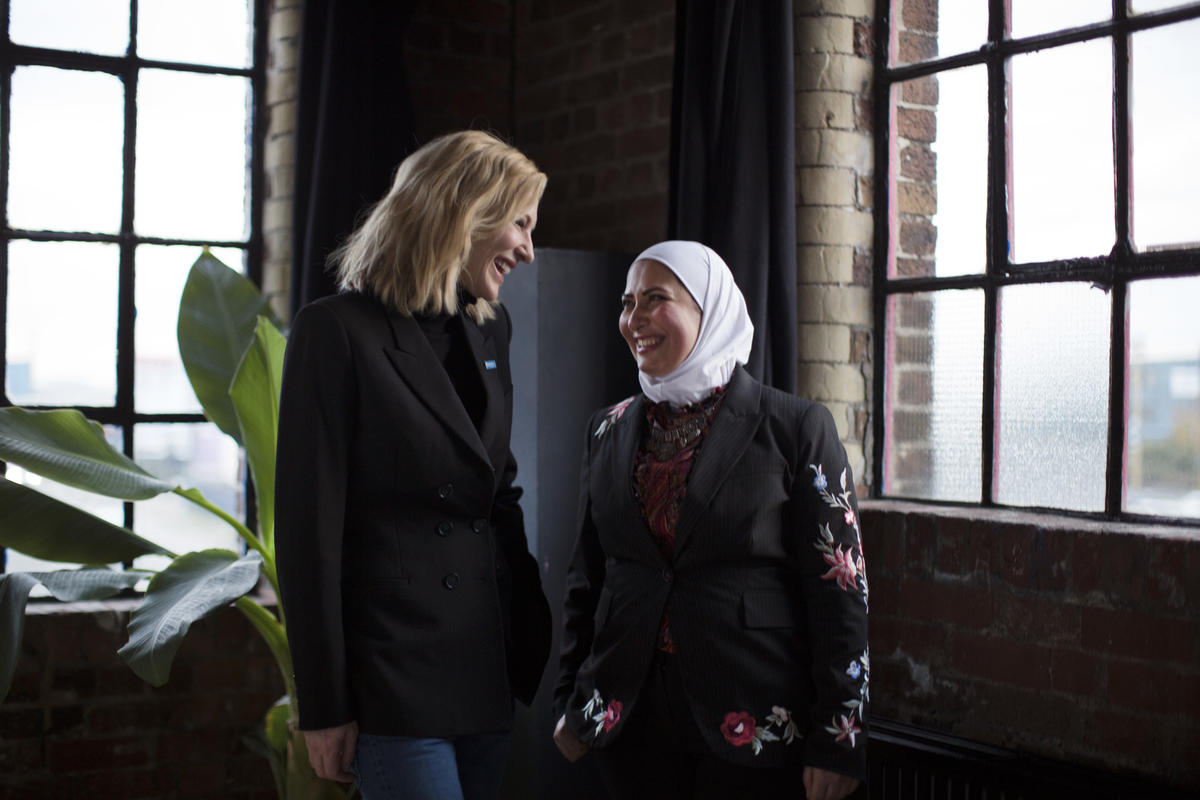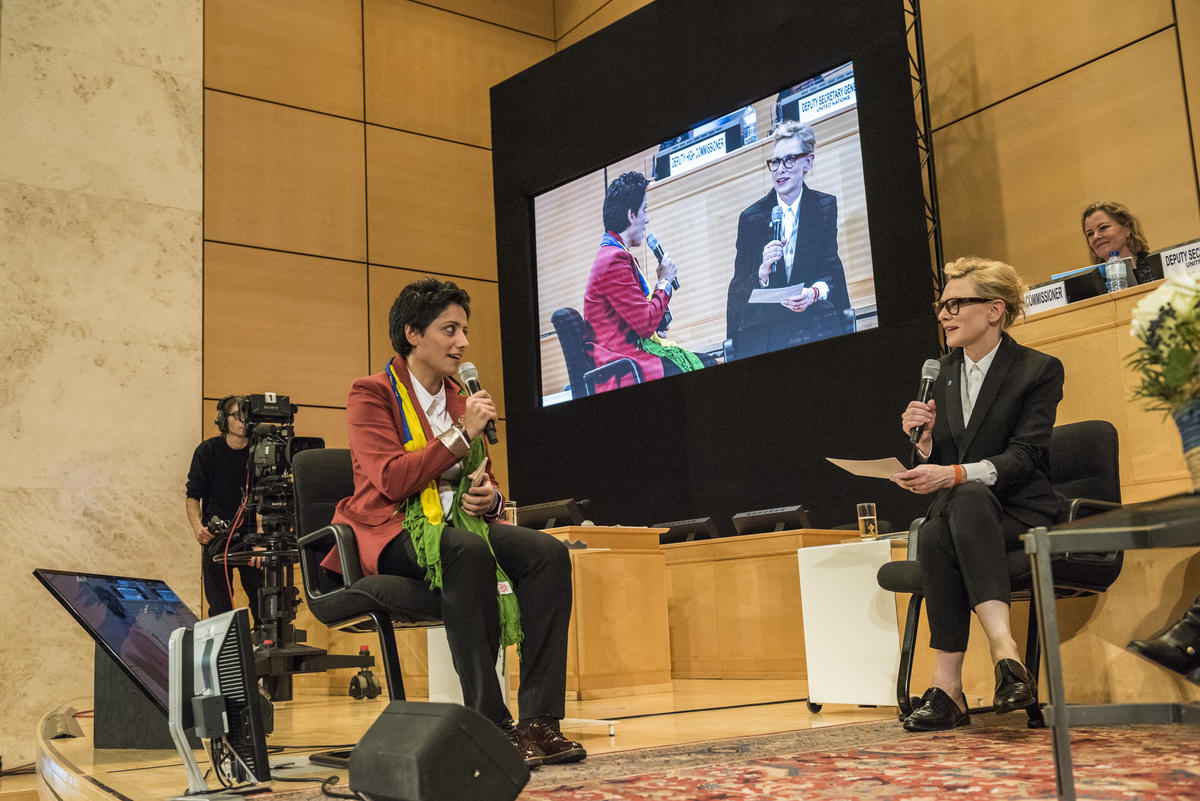Cate Blanchett
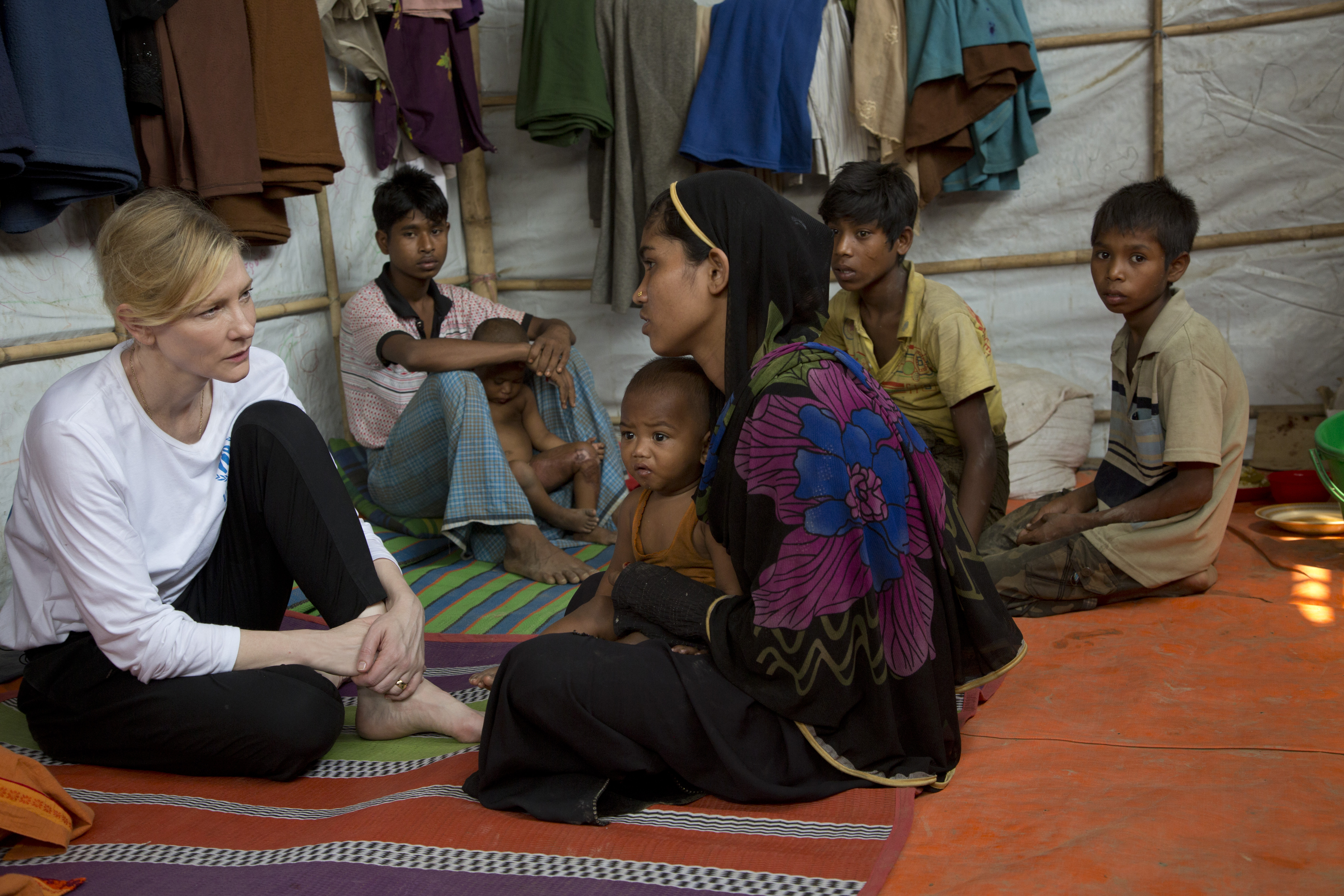
Cate Blanchett
About Cate
Cate Blanchett was announced as Goodwill Ambassador for UNHCR, the UN Refugee Agency in 2016.
In January of 2020, Cate appeared at the Berlin Film Festival for the premiere of the TV series, Stateless, which she co-created and executive produced. The show touches on issues of asylum, detention and broader themes of identity as well as providing an opportunity to examine the issue of statelessness. Cate said “We live in a world where about one per cent of all humanity is now displaced as a result of conflict or persecution. Through Stateless, I hope to prompt people to rethink how we all are responding to the current displacement crisis.” The show launched on ABC Australia, before going global on Netflix in July 2020. In a podcast promoting the series, Cate discussed the Australian immigration system with Gillian Triggs, UNHCR’s Assistant High Commissioner for Protection.
In April 2020, Cate joined UNHCR in launching #FilmsOfHope with IMDb, sharing her personal list of film recommendations for people to watch during the Coronavirus lockdown as a way to explore issues of identity, community, hope and home. As part of the project, she also recorded a conversation with Director, James Gray.
Continuing the theme of hope, Cate penned a powerful Letter of Hope for a global initiative by Vogue in August 2020.
Cate’s advocacy for refugees was honoured as part of the Variety Power of Women series and in an interview on Liftetime TV, where she recognised the commitment and contribution of women humanitarians, including UNHCR’s Alessandra Morelli.
Cate Blanchett has publicly supported UNHCR since 2015 and was named a UNHCR Goodwill Ambassador in May 2016. On her appointment, Cate said: "I am deeply proud to take on this role. There has never been a more crucial time to stand with refugees and show solidarity.” Her support ranges across advocacy, awareness raising and fundraising and focusses both on humanising the refugee issue and amplifying the voices of refugees so that their stories, experience and needs can reach a wider audience. Blanchett also retains a special interest in the scourge of statelessness which affects millions of people worldwide, denying them basic rights, including access to education, healthcare and the ability to work and travel.
In 2020 Cate appeared at the Berlin Film Festival for the premiere of her new TV series, Stateless. The show touches on issues of asylum, detention and broader themes of identity as well as providing an opportunity to explain the issue of statelessness. Cate said “speaking to stateless people the common thing that all say is that they feel invisible, so we’re [the show] dealing with what happens when we get separated from our humanity.”
UNHCR and IMDB collaborated with Cate to share #FilmsofHope to watch during the coronavirus pandemic. The project explored themes of human resilience, hope and home and also featured a conversation with director James Gray. Whilst lauding heroes at home, Cate urged people to also ‘imagine for a moment what it would be like in an overcrowded refugee camp with the threat of COVID-19’ and to think of refugees who are more vulnerable than ever.
To mark the first Global Refugee Forum (December 2019), Cate joined refugees and fellow ambassadors in the #EveryoneCounts initiative, celebrating the strength, resilience and skills that refugees can bring to their new communities and urging everyone to play their part in finding more solutions to the global displacement crisis.
In October 2019 Cate spoke at the High Level Segment on Statelessness at the UN Palais, Geneva. Her contribution included an inspiring interview with Maha Mamo, who shared her personal journey from statelessness to becoming a citizen of Brazil.
In June 2019, Cate appeared in an episode of UNHCR’s podcast "Awake at Night" with Melissa Fleming, to discuss her experiences with refugees and how it has profoundly altered her perception of human suffering and the capacity to hope.
Following a visit to settlements in Bangladesh’s Cox’s Bazar in March 2018, Cate warned of a “race against time” to protect Rohingya refugees from the worst impacts of the upcoming monsoon season. In August 2018, to mark the first anniversary of the onset of the Rohingya emergency, Blanchett spoke movingly to the UN Security Council, sharing individual stories of refugees she had met, and urging the international community to provide much-needed support in Bangladesh, as well as to ensure conditions in Myanmar that would allow the voluntary, safe and dignified return of refugees.
In January 2018 Blanchett was awarded the prestigious Crystal Award at the World Economic Forum, honouring her tireless advocacy for refugees. In her capacity as UNHCR Goodwill Ambassador Cate called on political and business leaders at the World Economic Forum, Davos to rethink their approach to refugees, emphasizing the need for compassion and burden-sharing. During an interview with Nick Kristof of the New York Times, she called for a renewed focus on the human perspective. Other high level speaking engagements include Google Zeitgeist and Women in the World.
In 2016, following a mission to Jordan to meet Syrian refugees, Blanchett helped bring together a group of artists to perform an ensemble reading of Jenifer Toksvig’s poem ‘What They Took With Them’ in support of UNHCR's #WithRefugees campaign. Blanchett launched a unique “world tour” of Facebook Live events, featuring supporters across the globe highlighting the urgent need for solidarity with refugees.
In 2015, Cate travelled to Lebanon to meet with Syrian refugees, as well as to hear testimonies from stateless people as part of her broader support for UNHCR’s #IBelong Campaign. One stateless person she met was Rama, a young girl with huge ambitions, but with her potential limited by her lack of nationality and all the rights that bestows. Blanchett also spoke with Ahmad, a Syrian refugee who left home with his family, but hopes to return to Syria one day and fulfill his dream of becoming an airline pilot.
Cate has also met refugee and asylum-seeker families in Brisbane who had previously been transferred by Australia to Christmas Island, Nauru and Papua New Guinea. She heard firsthand of the immense harm they had suffered under Australia’s “offshore-processing” approach.




